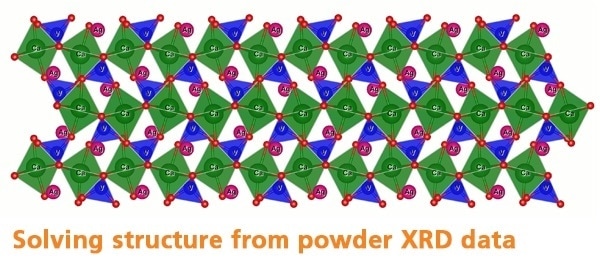Jul 11 2017

Image Credits: PANalytical
The understanding of a crystal structure is a key component in the characterization of a new compound and a first step towards tailoring of its properties. Traditionally crystal structures are solved using single-crystal X-ray diffraction. Thanks to a number of matured algorithms and powerful software packages, nowadays, structure solution from single-crystal X-ray diffraction data has become a push-button operation in many cases. However, most of the crystalline materials are not available as single crystals, and, hence, the only route to extract the information about their structural properties is by using powder X-ray diffraction.
The first structure solved from powder diffraction data was LiSbWO6 [Le Bail et al., 1988]. Since then, structure solution from powder data has developed into an established technique suitable for any crystalline material.
The first step to a successful structure solution from powder data is the availability of high-quality X-ray diffraction data. Most of the modern floor-standing diffractometers can deliver data of sufficient quality. Not every benchtop diffractometer, however, can stand the challenge. Recently Gwilherm Nénert, XRD application specialist at Malvern PANalytical, solved the crystal structure of AgCaVO4 from powder X-ray data obtained on the Aeris Research benchtop diffractometer (Synthesis and crystal structure of the new vanadate AgCaVO4: Comparison with the arcanite structure, G. Nénert, 2017). Visit our website to download the data sheet, summarizing this case study, and to learn more about structure solution from X-ray powder diffraction.